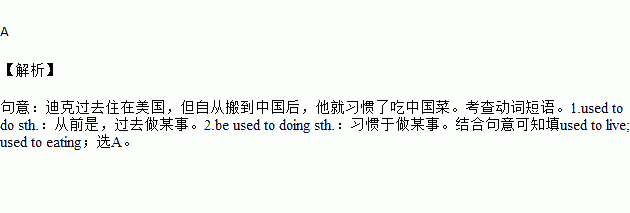题目内容
Dick __________ in America, but he has been ___________ Chinese food since he moved to China.
A.used to live; used to eating
B.is used to live; used to eat
C.is used to live; used to eating
D.used to living; used to eat
练习册系列答案
相关题目

